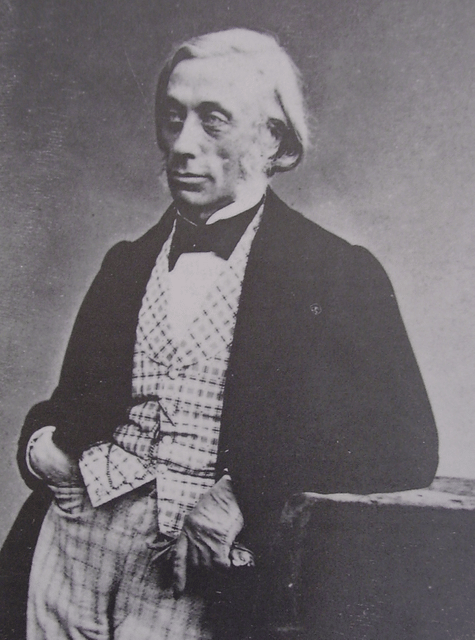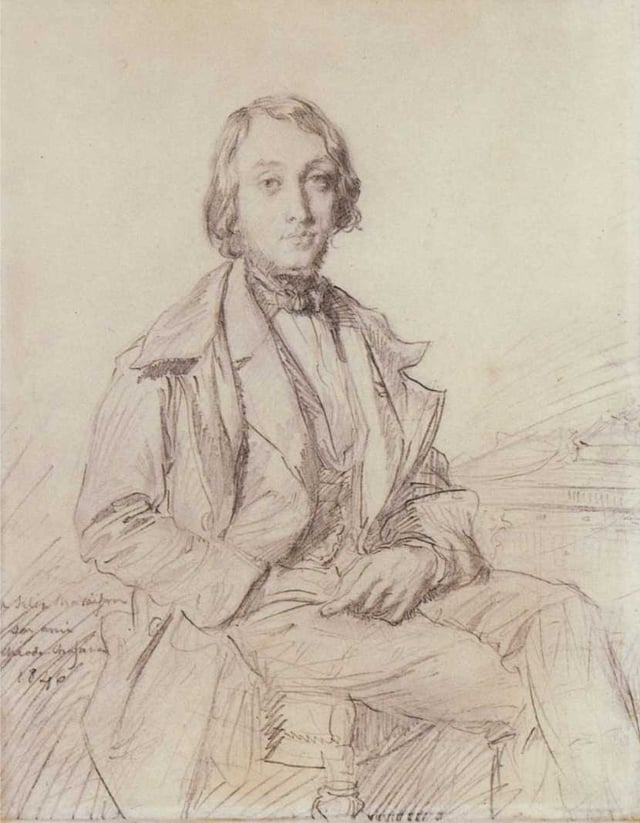Félix Ravaisson-Mollien

Félix Ravaisson-Mollien

Felix Ravaisson-Mollien | |
|---|---|
| Born | 23 October 1813 Namur, France |
| Died | 18 May 1900 (1900-05-19)(aged 86) Paris, France |
| Education | Collège Rollin |
| Alma mater | University of Munich |
| Era | 19th-century philosophy |
| Region | Western philosophy |
| School | Continental philosophy French spiritualism |
| Institutions | University of Rennes |
Main interests | Metaphysics Positive philosophy |
Notable ideas | Criticism of French eclecticism |
Influenced
| |
Jean Gaspard Félix Ravaisson-Mollien (French: [ʁavɛsɔ̃ mɔljɛ̃]; 23 October 1813 – 18 May 1900) was a French philosopher and archaeologist. He was a student of Schelling and a teacher of Bergson. His philosophy fits in the tradition of French Spiritualism. He was influenced by Maine de Biran re-actualized the Aristotelian Metaphysics and critique of eclectism of Victor Cousin in La philosophie en France au XIXe siècle. He did not occupy a university chair, but he was the conservator of the department of antiquities at the Louvre, president of the jury of the Aggregation of philosophy in France and Inspector General of Libraries.[1]
Felix Ravaisson-Mollien | |
|---|---|
| Born | 23 October 1813 Namur, France |
| Died | 18 May 1900 (1900-05-19)(aged 86) Paris, France |
| Education | Collège Rollin |
| Alma mater | University of Munich |
| Era | 19th-century philosophy |
| Region | Western philosophy |
| School | Continental philosophy French spiritualism |
| Institutions | University of Rennes |
Main interests | Metaphysics Positive philosophy |
Notable ideas | Criticism of French eclecticism |
Influenced
| |
Biography

Théodore Chassériau, Portrait of Jean-Gaspard-Félix Larcher Ravaisson-Mollien
Ravaisson was born at Namur. After a successful course of study at the Collège Rollin, he went to Munich in autumn 1839, where he attended the lectures of Schelling, and took his degree in philosophy in 1836. In the following year he published the first volume of his famous work Essai sur la métaphysique d'Aristote ("Essay on the Metaphysics of Aristotle"), to which in 1846 he added a supplementary volume. This work not only criticizes and comments on the theories of Aristotle and the Peripatetics, but also develops from them a modern philosophical system.
In 1838 he received his doctorate, his thesis entitled "De l'habitude" ("On Habit"), which was to become a classic text (a metaphysical 'poem' on nature in general apprehended through an intuitive analysis of acquired habit as a particular manifestation of its essential being, much admired by Bergson and Heidegger), and became professor of philosophy at Rennes. From 1840 he was inspector-general of public libraries, and in 1860 became inspector-general in the department of higher education. He was also a member of the Academy of Moral and Political Sciences, and curator of the Department of Antiquities at the Louvre (from 1870). He died in Paris.
In philosophy, he was one of the school of Victor Cousin, with whom he was at issue in many important points. The act of consciousness, according to him, is the basis of all knowledge. Acts of consciousness are manifestations of will, which is the motive and creative power of the intellectual life. The idea of God is a cumulative intuition given by all the various faculties of the mind, in its observation of harmony in nature and in man. This theory had considerable influence on speculative philosophy in France during the later years of the 19th century.
Ravaisson's chief philosophical works are: "Les Fragments philosophiques de Hamilton" (in the Revue des Deux Mondes, November, 1840); Rapport sur le stoicisme (1851); La Philosophie en France au dix-neuvième siècle (1868; 3rd ed., 1889); Morale et métaphysique (1893). Eminent as a philosopher, Ravaisson was also an archaeologist, and contributed articles on ancient sculpture to the Revue Archéologique and the Mémoires de l'Académie des Inscriptions. In 1871 he published a monograph on the Venus de Milo.